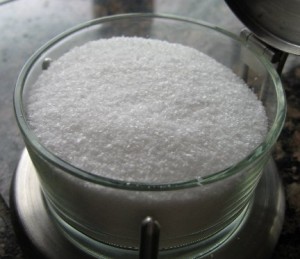 So I can have my steak and eat it too! There is still one last food myth that I really want to share with you, though. I don’t know about you, but I like a lot of salt in my food. I have heard so many times that salt is bad for your blood pressure. True or false?
So I can have my steak and eat it too! There is still one last food myth that I really want to share with you, though. I don’t know about you, but I like a lot of salt in my food. I have heard so many times that salt is bad for your blood pressure. True or false?
Myth No. 5: Salt causes high blood pressure and should be avoided
The origin: In the 1940s, a Duke University researcher named Walter Kempner, M.D., became famous for using salt restriction to treat people with high blood pressure. Later, studies confirmed that reducing salt could help reduce hypertension.What science really shows: Large-scale scientific reviews have determined there’s no reason for people with normal blood pressure to restrict their sodium intake. Now, if you already have high blood pressure, you may be “salt sensitive.” As a result, reducing the amount of salt you eat could be helpful.
However, it’s been known for the past 20 years that people with high blood pressure who don’t want to lower their salt intake can simply consume more potassium-containing foods. Why? Because it’s really the balance of the two minerals that matters. In fact, Dutch researchers determined that a low potassium intake has the same impact on your blood pressure as high salt consumption does. And it turns out, the average guy consumes 3,100 milligrams (mg) of potassium a day—1,600 mg. less than recommended.
The bottom line: Strive for a potassium-rich diet, which you can achieve by eating a wide variety of fruits, vegetables and legumes. For instance, spinach, broccoli, bananas, white potatoes and most types of beans each contain more than 400 mg. potassium per serving.
I think it’s really interesting that the balance between sodium and potassium is more important – something new that I learned today. So I guess what I should do instead is to focus more on getting potassium (which I didn’t really pay attention to).
Originally posted on September 29, 2008 @ 12:35 am